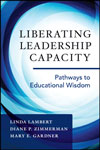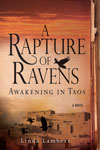« Where art thou, Tenure? | A Community Leadership Series »
Revisiting Steinbeck’s The Pearl
For decades I’ve had this visceral memory of The Pearl, sensing that it was that little book that held secrets of my deepest values about class, race, gender, and religion, as well as many early vicarious experiences of the darkest of human emotions: fear, shame, rage, humiliation. It was during high school in this small Kansas town, and prompted by a recommendation by one of my most valued mentors that I read the book. So when our long-time book club decided to take a special trip to the Monterey area this spring, evolving into a study of Steinbeck, it provided an opportunity to visit that transformative high school experience. I would read it again.
You see, six of us, three couples of advancing years, decided a few years ago to have a two-day book club. Since we are scattered from Sea Ranch to San Rafael, going back and forth in an evening was not feasible. We pepper our time together with good conversations and food, book talks, movies with the same themes as the book, etc. From Monterey, we will visit Salinas and the Steinbeck museum and home, then his old stomps in Cannery Row. Each of us decided to read a different Steinbeck book and discuss prevailing themes.
In spite of my youth and inexperience when I first read The Pearl—therefore, being more easily impressed and moved—I was surprised to find myself, once again, profoundly affected by the same little book. For the many of you who may have read the book years ago (or have not read it), I will remind you: Steinbeck’s writing moves with a deliberate ominous pace, unfolding a great drama around the finding of the largest pearl ever seen. Yet the pearl is but a simple vehicle for describing the tragedy sure to fall on a simple man who seeks to leave his station. Kino, a poor Mexican man from the coast of the Sea of Cortez, dared to dream that his son would learn to read and in so doing would challenge his fate. When a scorpion bit his son and the child was sure to die, the doctor yelled out that he was a doctor, not a veterinarian!
Kino knew that, “…the gods do not love man’s plans, and the gods do not love success unless it comes by accident. He knew that the gods take revenge if a man be successful through his own efforts….let one man step out of the regular thought or the known and regular pattern, and the nerves of the townspeople ring with nervousness and communication travels over the nerve lines of the whole town.” Was it not that every year the priest gave the same sermon? Leaving one’s assigned place in life was against God’s plan:
…it was against religion, and the Father made that very clear. The loss of the pearl was a punishment visited on those who tried to leave their station. And the Father made it clear that each man and women is a soldier sent by God to guard some part of the castle of the Universe. And some are in the ramparts and some far deep in the darkness of the walls. But each one must remain faithful to his post and must not go running about, else the castle is in danger from the assaults of Hell.”
Literature provokes our imaginations, hones our values and shapes our lives.
Until next week…
2 Responses to “Revisiting Steinbeck’s The Pearl”
Leave a Reply





 Conceptions of leadership have evolved, and Liberating Leadership Capacity captures these new ideas and provides a pathway to create sustainable systems of high leadership capacity. Available April 2016 from
Conceptions of leadership have evolved, and Liberating Leadership Capacity captures these new ideas and provides a pathway to create sustainable systems of high leadership capacity. Available April 2016 from  A sizzling new novel set in Taos, New Mexico. The third in the Justine Trilogy, preceded by the award-winning, The Cairo Codex and The Italian Letters. Buy it at your local independent bookstore,
A sizzling new novel set in Taos, New Mexico. The third in the Justine Trilogy, preceded by the award-winning, The Cairo Codex and The Italian Letters. Buy it at your local independent bookstore, 

Can’t wait to hear more about your understanding of Steinbeck the man in the mext 3 days. Chuck and Barbara
Chuck,
More on Steinbeck next week! Linda